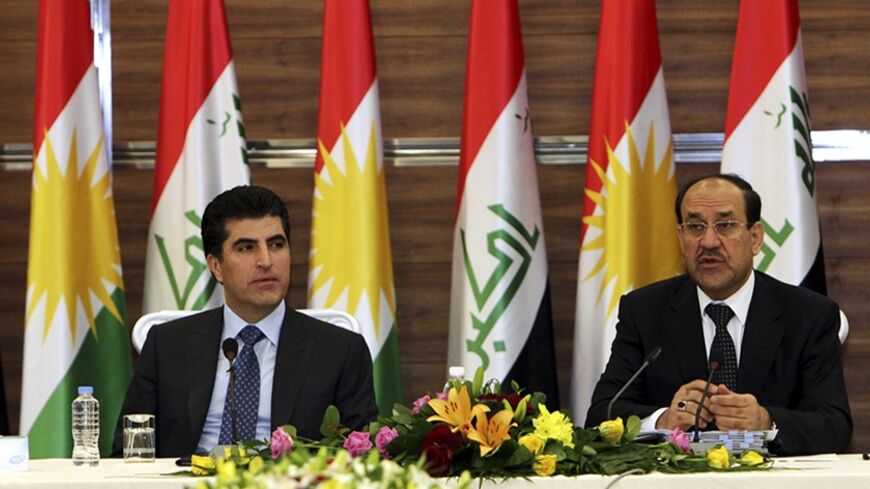The ongoing tit for tat between Baghdad and Erbil over oil-export rights and revenues has escalated over the past two weeks, leading to the Kurdistan Regional Government's (KRG) most serious banking crisis since 1991. In the absence of an agreement, Baghdad has withheld part of the KRG’s revenues, resulting in non-payment of some civil servant salaries for two to three months, including the Peshmerga forces and the Oil Protection Force that guards international oil company (IOC) installations. KRG President Massoud Barzani has responded harshly by equating Baghdad’s actions to a “declaration of war on the people of Kurdistan” while claiming the ability to pay salaries from KRG funds.
Despite employing nationalist rhetoric, staging anti-Maliki protests, blaming the United States for a lack of support and pressing IOCs for payments, the KRG’s efforts to leverage Baghdad and independently export oil remain ineffective. Alongside ongoing legal, political and technical obstacles, the KRG’s key ally and energy partner, Turkish Prime Minister Recep Tayyip Erdogan, is facing his own domestic crisis and an uncertain political future. In the absence of a legal transit route or viable alternative revenue source, and with mounting criticism by local populations and investor confidence to sustain, Erbil will be hard-pressed to compromise with Baghdad. If not, the landlocked region risks undermining the economic and political gains it has made thus far while leaving its population and key institutions vulnerable to social, political and financial instability.


